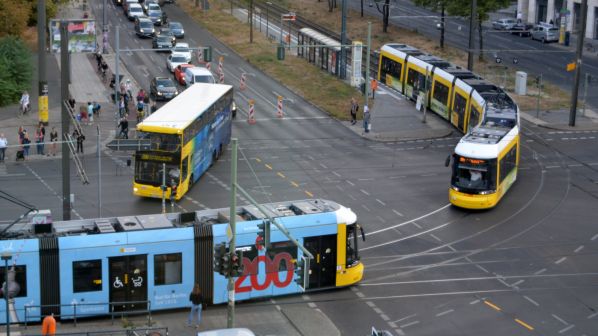The UITP says transport represents almost a quarter of Europe’s greenhouse gas emissions and is one of the main causes of air pollution. While other sectors have witnessed declines in their overall emissions, transport has not, with individual car use and short haul flights some of the single largest contributors to overall emissions.
“The fastest and most cost-efficient way to decarbonise people’s daily mobility and reduce the carbon footprint of their mobility choice is to promote the use of public transport, walking and cycling,” the UITP says.
Flagship policy
The EU Green Deal is von der Leyen’s flagship policy programme. While formal details will not be announced until after she assumes office on December 1, von der Leyen is targeting a 50% reduction in EU greenhouse gas emissions by 2030 compared with 1990 levels. She has also committed to raising this target to 55% in a “responsible way.”

An EU carbon border tax, reforms to the emissions trading system, and the establishment of a Just Transition Fund to support smaller economies' move away from fossil fuels are among the possible policies already revealed. The European Investment Bank will also cease funding fossil fuel projects in 2021 with von der Leyen stating she wants the bank to become “Europe’s climate bank.”
The UITP says the Green Deal should also include specific CO₂ reduction targets for the transport sector enabling the decarbonisation of people’s travel. At the centre of this should be efforts to decarbonise the public transport fleet with cities becoming leaders in tackling climate change, air pollution, and the circular economy. “The UITP and its members are dedicated to supporting the achievement of such a goal by fostering practical change within public transport undertakings aligned with the Sustainable Transport Goals,” the UITP says.
According to UITP data, in 2018, buses, trams and metros in EU cities carried around 50 billion passengers. This saved some 36 billion annual car trips, or 100 million daily, car trips. Every year, public transport can help to avoid up 20 tonnes of CO₂ in cities while only emitting one tonne.
Economic and social priorities
The UITP says that the EU Green Deal will have to stay compatible with other economic and social priorities, meaning there must be an effort to mitigate the impact of future policies on the most vulnerable. With public transport improving accessibility to urban areas, investments here will offer environmental as well as economic and social benefits.
“The most affordable but largely overlooked way to achieving net carbon neutrality is to provide people with attractive clean transport options such as public transport, walking and cycling,” the UITP says. “We are committed to achieve this in our sector and the EU Green Deal can make this happen.”

